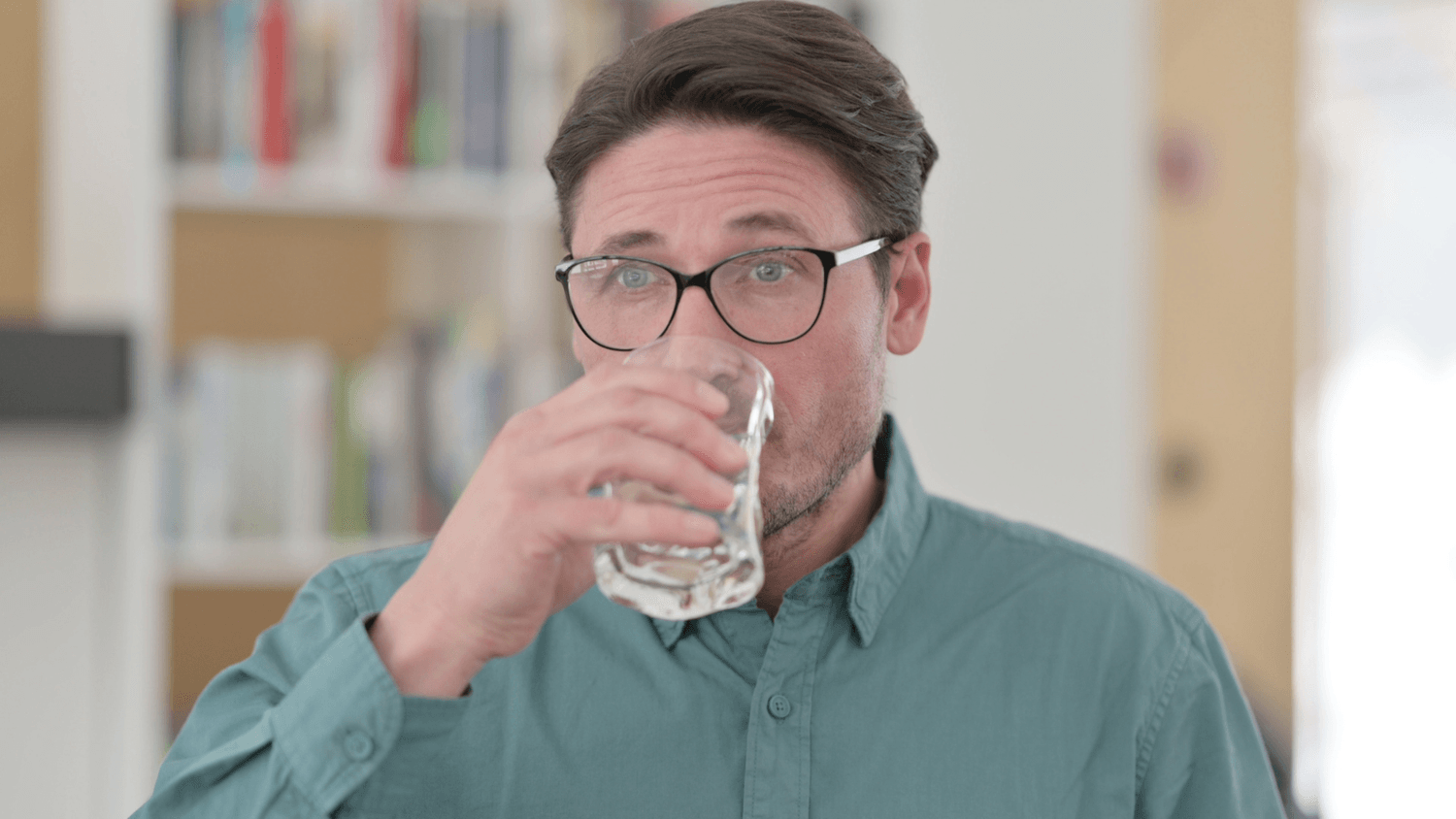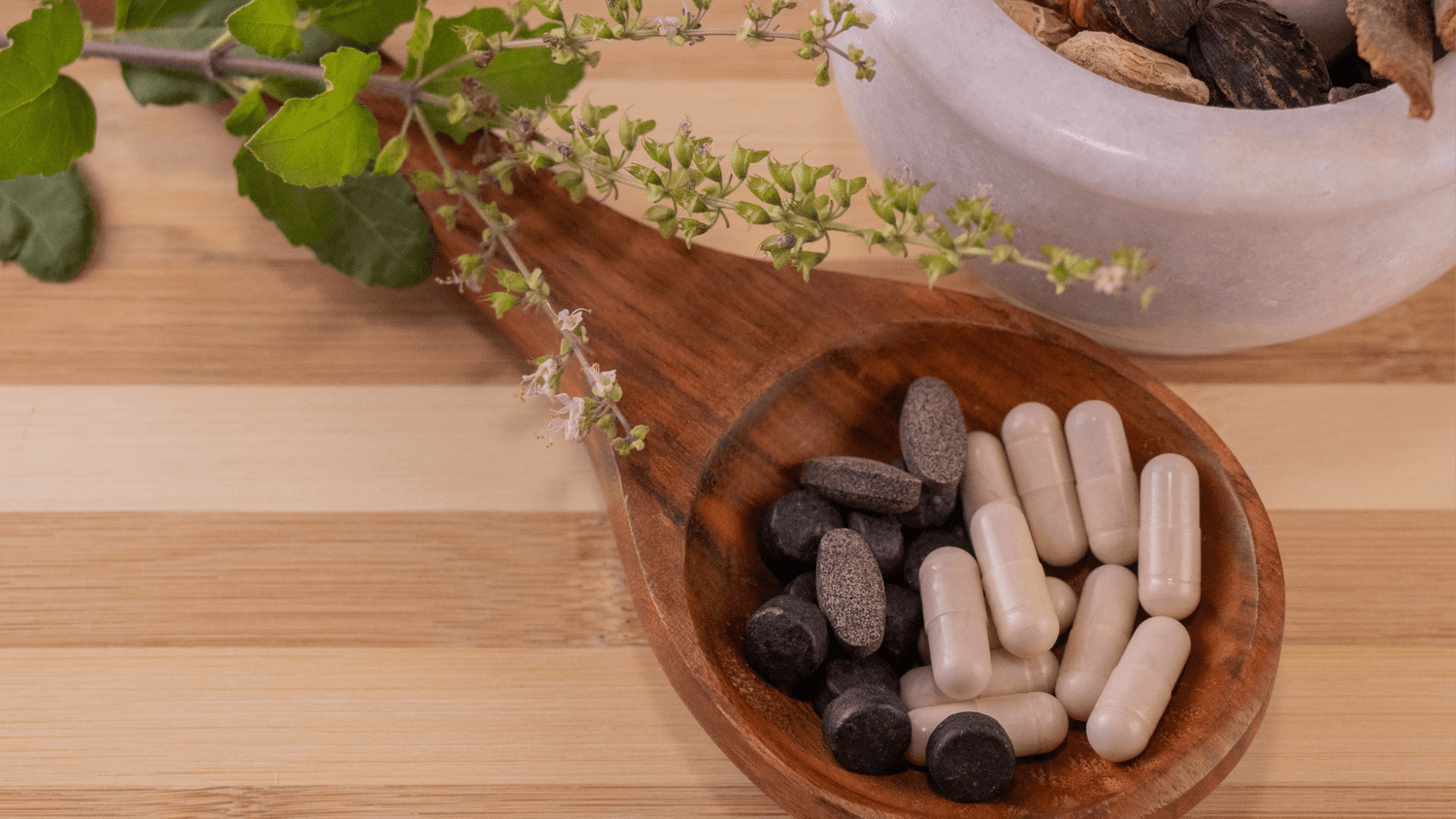How to Reduce Prostate Size Without Medication: Natural Solutions That Work
Prostate health plays a significant role in overall well-being, especially as men age. Many people wonder if it's possible to reduce prostate size without medication—and the answer is yes. By focusing on natural lifestyle changes, you can improve prostate health and potentially ease related symptoms.
This article explores simple, effective strategies to support your body, all without relying on prescriptions. Whether you're looking for prevention or relief, these natural approaches offer a practical path forward.
Understanding Prostate Enlargement
As men age, changes in prostate size can lead to uncomfortable symptoms and impact daily life. Understanding these changes is the first step in managing them. For many, this understanding is key to learning how to reduce prostate size without medication. Below, we’ll break down the basics of prostate enlargement and its symptoms.
What is Benign Prostatic Hyperplasia?
Benign Prostatic Hyperplasia (BPH) is a non-cancerous growth of the prostate gland. It’s a common condition, particularly in men over 50. The prostate, a small gland located below the bladder, surrounds the urethra—the tube that carries urine out of the body. When the prostate grows larger, it can press on the urethra, causing urinary symptoms.
BPH is not the same as prostate cancer, and having BPH doesn’t mean you’re more likely to develop cancer. It’s simply a result of hormonal changes that occur as men age. The hormone dihydrotestosterone (DHT) plays a significant role in this growth, as does the natural decrease in testosterone levels over time.
While BPH itself isn’t dangerous, its symptoms can be frustrating and disruptive. Fortunately, there are natural ways to address the issue, including steps to reduce the prostate size without medication.
Symptoms of Enlarged Prostate
Recognizing the symptoms of an enlarged prostate is crucial for addressing the issue early. Here’s what you might notice:
- Frequent need to urinate: You may feel like you’re always running to the bathroom, especially at night.
- Weak urine stream: The flow of urine may feel slower or like there’s resistance.
- Difficulty starting urination: Struggling to begin urinating can be a frustrating and common symptom.
- Dribbling at the end of urination: Even after you think you’ve finished, small amounts of urine may still dribble out.
- Inability to completely empty the bladder: This can leave you feeling uncomfortable or needing to go again soon after.
In some cases, symptoms can escalate to include pain during urination or, in severe cases, the complete inability to urinate. If you experience severe symptoms, it’s important to consult a healthcare professional.
By recognizing these signs early, you can take proactive steps to manage BPH naturally. Along with lifestyle changes, focusing on ways to reduce prostate size without medication can help you get back to living comfortably.
Lifestyle Changes to Reduce Prostate Size
Adjusting your lifestyle can have a big impact on prostate health. With the right habits, you can support your body naturally and effectively reduce prostate size without medication. Below, we explore changes you can make today.
Dietary Adjustments

The foods you eat directly influence your prostate health. Making smart dietary changes is one of the most effective ways to manage an enlarged prostate.
Foods that promote prostate health:
- Tomatoes: Rich in lycopene, which has been linked to reduced prostate enlargement.
- Salmon and other fatty fish: High in omega-3 fatty acids, which can help reduce inflammation.
- Nuts and seeds: Pumpkin seeds, in particular, are loaded with zinc, a key mineral for prostate health.
- Vegetables like broccoli and kale: These cruciferous veggies contain antioxidants that protect prostate cells.
- Berries: Blueberries, strawberries, and raspberries are packed with anti-inflammatory compounds.
Foods to avoid:
- Red and processed meats: These can contribute to inflammation.
- Dairy: High-fat dairy products may worsen prostate symptoms.
- High-sodium meals: Reducing salt intake can help lower urinary symptoms linked to an enlarged prostate.
- Caffeine and alcohol: Both can irritate the bladder and worsen symptoms like frequent urination.
Making these changes doesn’t need to feel restrictive. Focus on adding healthful options rather than eliminating everything at once.
Importance of Exercise
Staying active isn’t just good for your heart—it’s essential for your prostate too. Regular exercise can improve blood flow, reduce weight, and decrease inflammation, all of which benefit prostate health.
How does exercise help?
- It reduces abdominal fat, which is linked to increased hormone activity that can enlarge the prostate.
- It boosts testosterone levels, balancing out hormones that fuel prostate growth.
- It strengthens pelvic muscles, supporting better bladder control.
What types of exercise work best?
- Aerobic workouts: Brisk walking, cycling, or swimming can improve circulation and reduce inflammation.
- Strength training: Lifting weights helps maintain muscle mass while supporting overall metabolism.
- Kegel exercises: These are especially helpful for men experiencing urinary issues as they strengthen the pelvic floor.
Aim for at least 30 minutes of moderate activity most days of the week. Even small movements, like choosing stairs over elevators, make a difference.
Hydration Tips

How much and what you drink can affect prostate health. Proper hydration is crucial, but it’s all about balance.
How hydration supports prostate health:
- Drinking enough water helps flush toxins from the body.
- Staying hydrated ensures the urinary tract functions smoothly and reduces irritation.
- Balanced fluid intake prevents bladder overactivity, which can worsen symptoms.
Tips for proper hydration:
1. Time your fluids: Avoid heavy drinking close to bedtime to minimize nighttime trips to the bathroom.
2. Choose water first: Skip sugary drinks that can contribute to inflammation.
3. Mind your caffeine intake: Stick to decaf options to avoid over-stimulation of the bladder.
4. Don’t overdo it: Excessive water intake may strain your bladder, so aim for moderate hydration throughout the day.
By keeping these tips in check, you can support your urinary system while easing strain on the prostate.
When these lifestyle changes are combined, the path to reducing prostate size naturally becomes more attainable—and sustainable—for the long term.
Natural Remedies for Prostate Health
Prostate health can often benefit from natural strategies, including herbal supplements and alternative therapies. These methods are appealing to many looking to reduce prostate size without medication. By tapping into nature's potential, you might find relief from symptoms and support for overall wellness.
Herbal Supplements
Some herbs are known for their prostate-supporting properties. These natural options have been used for generations, and modern research highlights their potential benefits.
- Saw Palmetto: Often considered the go-to for prostate health, this herb may help reduce prostate swelling and improve urinary symptoms.
- Pygeum (African Plum Extract): Studies suggest it may ease urinary problems by targeting inflammation and promoting better urine flow.
- Stinging Nettle Root: Used in traditional remedies, it might help manage symptoms like frequent urination and weak urine flow.
- Pumpkin Seed Oil: Rich in zinc and essential fatty acids, this oil supports hormone balance and prostate function.
- Green Tea Extract: Packed with antioxidants, it may lower inflammation and protect prostate cells from damage.
These supplements are widely available and may provide a natural alternative to traditional medications. Always consult a healthcare provider before starting any new regimen.

Homeopathy and Alternative Therapies
Some men turn to less conventional methods for prostate health. Though scientific evidence varies, anecdotal reports suggest that certain therapies may offer relief.
- Homeopathy: Practitioners often recommend remedies like Sabal serrulata or Conium maculatum for urinary concerns and prostate support.
- Acupuncture: By improving energy flow and reducing inflammation, this ancient practice may ease symptoms associated with an enlarged prostate.
- Pelvic Floor Therapy: Similar to Kegel exercises, this method strengthens pelvic muscles, which can improve bladder control and reduce leakage.
- Massage Therapy: Specific techniques targeting the lower back and pelvic region may increase circulation and provide symptomatic relief.
While these therapies aren't substitutes for medical advice, they can complement a natural approach to prostate health.
Consulting Healthcare Professionals
Taking charge of your prostate health doesn’t mean going it alone. While lifestyle changes and natural remedies can help, consulting healthcare professionals plays a key role in ensuring you're on the right path. Their expertise can provide clarity and tailored guidance based on your unique needs and health history.
When to Seek Help
Knowing when to consult a healthcare professional is critical. Some symptoms may signal the need for medical evaluation rather than self-treatment. Watch for these signs:
- Severe urinary symptoms: Struggling to urinate, a completely blocked flow, or significant pain during urination.
- Frequent nighttime urination: If you’re waking up multiple times every night, it could mean symptoms are worsening.
- Blood in your urine: Even a small amount should prompt immediate attention.
- Bladder infections: Recurrent infections might indicate that the condition needs more than at-home management.
- Sudden inability to empty your bladder: This can lead to serious complications and requires urgent care.
Prostate-related symptoms can sneak up over time, so it’s easy to overlook them. But ignoring signs like these could make things worse. A professional evaluation can help uncover underlying conditions and ensure you take the correct approach. Remember, early action can often prevent future complications.
Integrating Advice from Experts
Working closely with healthcare professionals doesn’t mean abandoning natural approaches. Instead, it adds depth and precision to your care plan. Here’s how collaboration can help you effectively reduce prostate size without medication:
1. Personalized evaluation: Each case of prostate enlargement is different. A professional can assess your symptoms and recommend tailored strategies.
2. Efficient monitoring: Regular check-ins ensure your chosen remedies are working and help catch any changes early.
3. Evidence-based recommendations: Professionals stay updated on the latest research, offering advice grounded in science.
4. Guidance on natural methods: They can suggest safe ways to combine dietary changes, supplements, and therapies with your overall plan.
5. Ruling out serious conditions: Prostate symptoms don’t automatically mean BPH. A doctor can rule out other issues, such as infections or prostate cancer.
Think of healthcare professionals as partners in your journey. They bring a wealth of knowledge that complements natural strategies. By consulting them, you gain insight and confidence, setting yourself up for long-term success.
Conclusion
Taking a natural approach to reduce prostate size without medication is both practical and effective for many men. Simple changes to diet, consistent exercise, and proper hydration can offer significant benefits. Adding natural remedies like herbal supplements and alternative therapies may further support prostate health.
Every individual’s journey is unique, so it’s important to monitor progress and stay proactive about your choices. Whether you're experiencing symptoms or focusing on prevention, these methods provide sustainable, drug-free options. Remember, prioritizing your health today can lead to a better quality of life tomorrow.





















